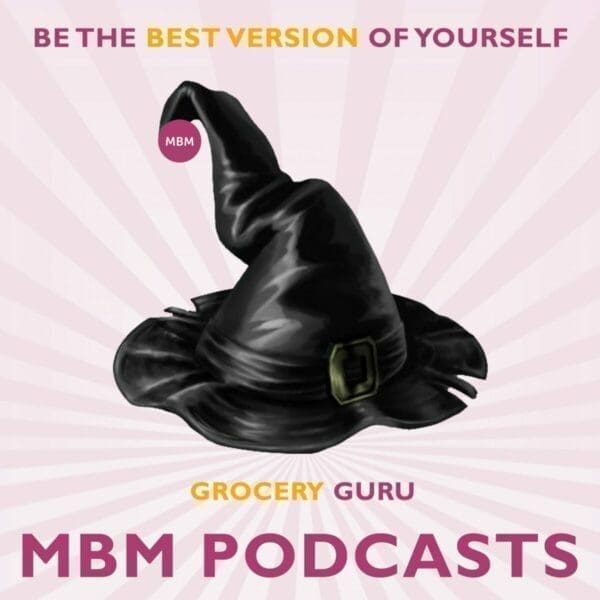Podcast: Play in new window | Download
Grocery Guru Ep 12: Tesco Christmas Q3 Results
Join Andrew Grant and Darren A. Smith in the twelfth episode of Grocery Guru: Tesco Christmas Q3 Results – 80% of sales in large stores are through Clubcard.
You Can Read the Full Tesco Christmas Results Episode Transcript Below:
Darren A. Smith:
Welcome to week 12 with The Grocery Group. It is Andrew Grant. Andrew, hello. How are you doing?
Andrew Grant:
Darren, good to see you again. How are you?
Darren A. Smith:
Hey, I’m all right. I’m all right. Lockdown, blah, vaccination, blah. We’re not going to talk about any of that, are we?
Andrew Grant:
No. No. It’s still the post-Christmas results season, and I thought today … I think it was yesterday, Tesco’s Christmas results statement was released. All very good stuff. Probably exactly what you would have expected. 8% like-for-like growth. People piling into Finest Christmas products. Lots and lots of online orders. So, I think the stuff we talked about last week in regard to Morrisons and Sainsbury’s. So yeah, a very, very good festive season for Tesco, but-
Darren A. Smith:
You’re talking about the Q3 statement for Christmas, aren’t you, the results for Tesco Group?

Andrew Grant:
That’s it. Yeah.
Darren A. Smith:
All right. All right.
Andrew Grant:
Inside that statement, not particularly hidden, but towards the end of that statement was a fascinating fact. They talked about the … And it’s very rare; actually, retailers disclose their loyalty information because it’s pretty sensitive stuff. So quite surprised that Ken Murphy actually said that in large stores, 80% of their sales at Christmas were Clubcard sales linked to people swiping their Clubcard at the checkout. That’s phenomenal.
Darren A. Smith:
That is high. So 8 in 10 pounds that are spent in Tesco is by someone who has a Clubcard, who’s swiped.
Andrew Grant:
In their larger stores, which you can understand. Because obviously in the Expresses, they’re much more transitory.
Darren A. Smith:
Yes.
Andrew Grant:
People dining in for a sandwich or a bottle of water are less likely either to have a Clubcard or to swipe it. But in their bigger stores, which is obviously the vast bulk of their volume, to have 8 out of 10 customers loyal, if you like. Loyal Clubcard shoppers. And what do you think’s driven that? I don’t think it was just the Christmas effect. I think it was something else.
Darren A. Smith:
What’s driven that?
Andrew Grant:
I don’t know if you’re a Tesco shopper if you’re a regular Tesco shopper. You should have noticed.
Darren A. Smith:
We’re more online, but then it still happens there. So I think because I’ve had a look at the Q3 statements. I knew what you were going to talk about. I think you’re going to say it’s promotions.
Andrew Grant:
Yeah. I think they’d been incredibly clever. I mean, most retailers with their loyalty promotions, they’re sort of second-best. They’re sort of add-ons and throw-ins. “Oh, use your loyalty card and get a minor promotion.” What Tesco, I think, have done very, very cleverly is taken their mainstream, high-hitting promotions and made them Clubcard-only. I mean, there are some fantastic Clubcard-only offers out there. And if you haven’t got a Clubcard, you’re wandering around a Tesco thinking, “I’m missing out on some fantastic deals here.” So probably, again, data they won’t share. They probably recruited a whole army of new Clubcard customers since they’ve started those promotions.
Darren A. Smith:
Well, I read the Q3 statement because I knew you were going to ask about it, and one of the things I read was that the … Let’s have a look. Clubcard penetration has gone up 10 points to over 80%, which ties in with what you said, and there are 2 million more active users. Wow.
Andrew Grant:
Ah, I missed that bit. I should have read a bit more closely. Right. So another-
Darren A. Smith:
I mean, that’s truly amazing.
Andrew Grant:
Absolutely. I mean, and I guess the two important points out of that for our dear listeners and viewers here is those Clubcard promotions, if you want to promote with Tesco going forward, then the biggest and beefiest promotions are going to be those Clubcard ones. If you’re not all over Clubcard loyalty data, if you’re not buying it of Dunnhumby, you’re going to have another arm sort of tied behind your back when it comes to trading with Tesco. So suppliers are going to be encouraged, I guess, to spend more and more on shopper data.
Darren A. Smith:
Yeah, and understand it, and learn from it, and evaluate. Does the buy two, get third free work? I mean, my experience of working with a lot of clients and a lot of suppliers over the last 10 years is, they don’t all have … Actually, I’m going to go as far. I’ll say most don’t have a return on investment from the amount they spend on promotions. They don’t say, “I spend £1, I got back £1.25.” Now, this is a whole new level of complexity, which is going to make it even harder but absolutely essential.
Andrew Grant:
Yeah. Absolutely. Secondly, with we said that 80% figure, which is phenomenal, Tesco are now literally almost owning their shoppers. There is the old industry adage that Tesco with its Clubcard knows better than your GP when you’re going to die. Yeah, because no. They know your postcode, they know your lifestyle, they know exactly what your diet is.
Darren A. Smith:
Yes. Yes.
Andrew Grant:
I’m sure we all go to the doctors and don’t actually quite tell them how much we exactly eat. Eat and drink, and particularly how much we drink. Tesco knows exactly how much you drink when you put those seven bottles of cheap red plunk in your basket every week. They see it.
Darren A. Smith:
Well, it’s very true, because you get the GP questionnaire. How many units of alcohol? You think, “Is a pint just one unit?” Only one.
Andrew Grant:
No.
Darren A. Smith:
I’m going to share a couple of other facts that amaze me in here. You mentioned the like-for-like growth of Tesco, 8%. Booker with 15%, which I thought was damn pretty good.
Andrew Grant:
Well, considering restaurants and hospitality are shut, that is pretty good.
Darren A. Smith:
Yeah. So, that one amazed me. And then just a couple of other stats. Over Christmas, 7 million orders, 400 million items. Wow. And Tesco are looking after, supporting 786,000 vulnerable shoppers. I mean, some big numbers there. Some really big numbers.
Andrew Grant:
No, I think as we’ve said before, the supermarkets that are clear winners out of this nasty virus crisis we’ve had, they’ve been doing the right thing. Was it Morrisons announced yesterday, they’re going to be the first supermarket to pay £10 an hour?
Darren A. Smith:
Oh, are they? I didn’t read that.
Andrew Grant:
Yeah.
Darren A. Smith:
Oh, okay, I was going to just say something else. They pay £10 an hour. Yeah. Okay.
Andrew Grant:
I’m going to be applying, Darren. So, it could be the last one of these. But yeah, they’re firing on all cylinders. Just about all the supermarkets firing on all cylinders at the moment. But also, I think, tend to do the right thing as well.
Darren A. Smith:
Certainly seems that way. I’ve got one more stat before we wrap up. The other one I saw was that we’ve got +80% increase in online sales, which equated to another billion pounds worth of online sales over the Q3, which I think was 19 weeks at Tesco. A billion pounds worth of online sales additional.
Andrew Grant:
Well, I think we said at the very, very first one of these, where I trapped you into working out what UFC was, yeah. Probably their biggest challenge now is, how do they cope with that probably unstoppable growth of online? Are there going to be enough vans to go on the roads to deliver this stuff? Where I live, constantly all you see is white vans delivering Amazon, DPD, food, you name it. That growth is phenomenal, and whether they can keep up with it, and manage to pick it, and make money doing it. Because as we’ve said before, the grocers have to some extent been lucky for the last 60 years. They’ve persuaded us to be our own pickers and deliverers, and we’re now turning our backs on that.
Darren A. Smith:
They certainly have. So I think where that leads me to is the new battleground maybe moves away from pricing to data, to insight. Understanding our shoppers, but not just regurgitating the Nielsen, the Kantar, the IRI data. Actually turn it into something that says, “There’s £7 million worth of opportunity in the category if we do these three things. One on promotion, one on decision hierarchy, and one on availability.” Fantastic. That’s got to be the new battleground.
Andrew Grant:
Yeah. Price is always going to be there, and as a supplier, these retailers are going to knock seven bells out of you on price. Of course they will, because they’re still operating on tiny, tiny margins. But yeah, if you can use insight to drive profitable volume, even if you’re making very, very small margins yourself doing it, then that’s the way to grow and survive.
Darren A. Smith:
Okay. All right. Well, thank you, Andrew. We will see you next week for week 13, and let’s what happens in the world of grocery.
Andrew Grant:
Lucky 13.
Darren A. Smith:
Lucky 13. You take care.
Andrew Grant:
Okay. Take care. Bye-bye.



